An LTE module for the
Network Simulator 3
Giuseppe Piro, Nicola Baldo, Marco Miozzo
- 25 March 2011 -
Wns3 2011 – Barcelona (Spain)
�
Outline
About the Long Term Evolution (LTE)
Development of the LTE module for ns-3
Module description
Network devices (UE and eNB)
Radio Bearer Management and the RRC Entity
Channel and PHY models
AMC module and CQI feedbacks
Control Messages
Limitation and Future works
25 Mar. 2011
Wns3 2011
�
About the Long Term Evolution
Long Term Evolution represents an emerging and
promising technology for providing a broadband
ubiquitous Internet access.
First 3GPP release: Release 8 (Dec. 2004) (the “release of the
release"is2008)
LTE has been designed for guaranteeing high capacity and data
rates, low cost deployments for cellular networks.
LTE will be the 4-th generation of cellular networks.
We need for a complete LTE simulator for testing
network performance and for implementing newer
25 Mar. 2011
Wns3 2011
algorithms/protocols
�
Development of the LTE module for ns-3
The development of the LTE module for ns-3
was carried out during the Google Summer of
Code 2010.
The module is built completely in C++.
It comprises 89 classes and approximately 9000 lines of code.
The module has been merged into ns-3.10 !
LTE is a very complex standard, and for this reason, at this time, it
is not yet possible the simulation a complete LTE system
However this contribution is fundamental since it set the basis for
developing such a complete tool
25 Mar. 2011
Wns3 2011
�
LTE module description (1)
What features have been implemented ?
Network devices: User Equipment (UE) and enhanced NodeB
(eNB)
Part of Radio Resource Control (RRC)
MAC queues and the RLC instances (TM)
Data Radio Bearers (with their QoS parameters)
PHY layer model with Resource Block level granularity
Outdoor E-UTRAN channel model
DL Channel Quality Indicator (CQI) management
Adaptive Modulation and Coding (AMC) scheme for the downlink
Support for the downlink packet scheduler
25 Mar. 2011
Wns3 2011
�
LTE module description (2)
Implemented E-UTRAN devices: UE
and eNB.
the LTE module is
The core of
composed by both MAC and PHY
layers of an LTE device.
The LTE device has been conceived as a
container of several entities:
the IP classifier,
MAC entity, and the PHY layer.
the RRC entity,
the
Their actual integration is device-dependent, due the intrinsic ifferences between the
entities involved (UE vs. eNB).
The implementation of each of these entities depends on which the device have to
do.
25 Mar. 2011
Wns3 2011
�
The eNB network device
UPPER LAYERS
Classify packet into a proper queue
IP Classifier
ForwardUp
Radio bearer
RLC
entity
MAC
queue
AMC
Packet
Scheduler
SendPacketBurst
SendIdealControlMessages
ReceiveIdealControlMessages
DL PHY
UL PHY
RRC
MAC
PHY
25 Mar. 2011
Wns3 2011
DL Channel
UL Channel
�
The UE network device
UPPER LAYERS
IP Classifier
ForwardUp
SendPacketBurst
Radio bearer
RLC
entity
MAC
queue
Create CQI
feedbacks
AMC
SendIdealControlMessages
ReceiveIdealControlMessages
DL PHY
UL PHY
RRC
MAC
PHY
25 Mar. 2011
Wns3 2011
DL Channel
UL Channel
�
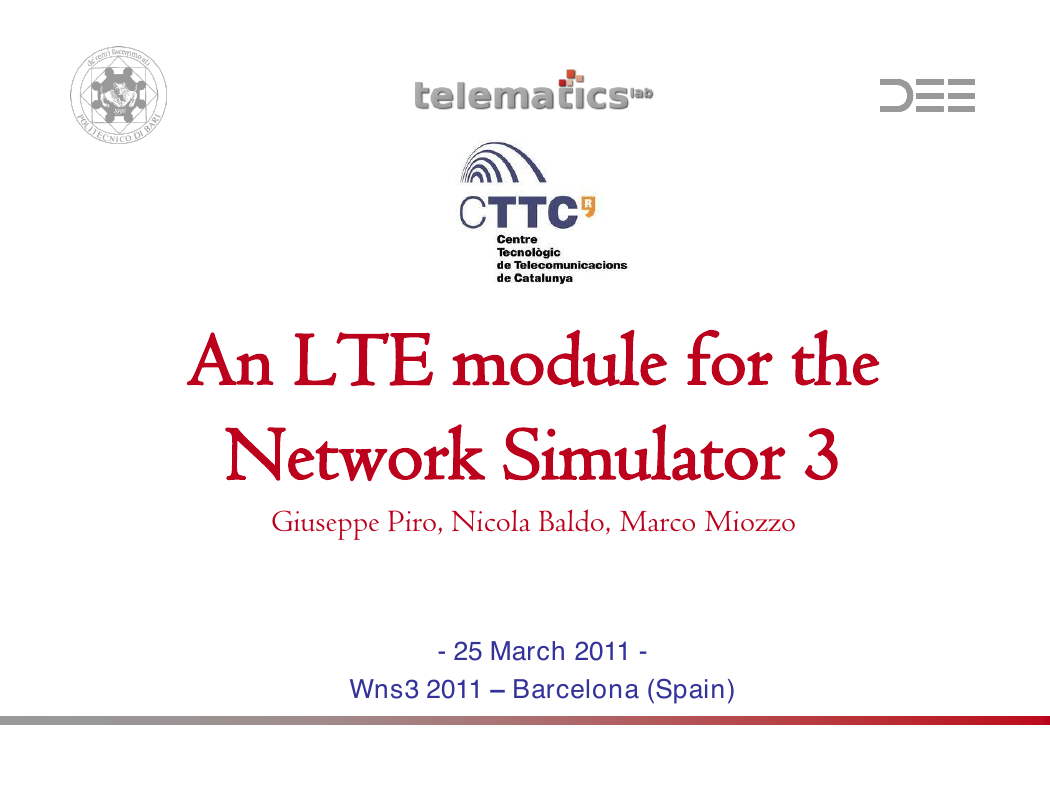
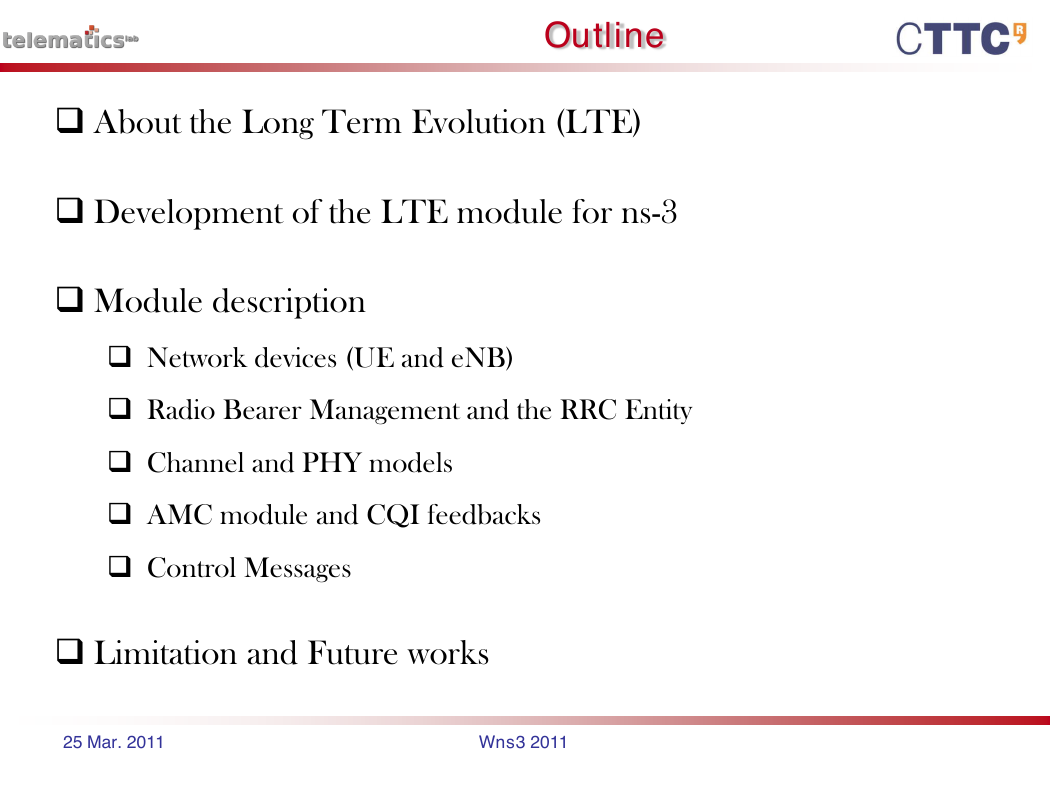
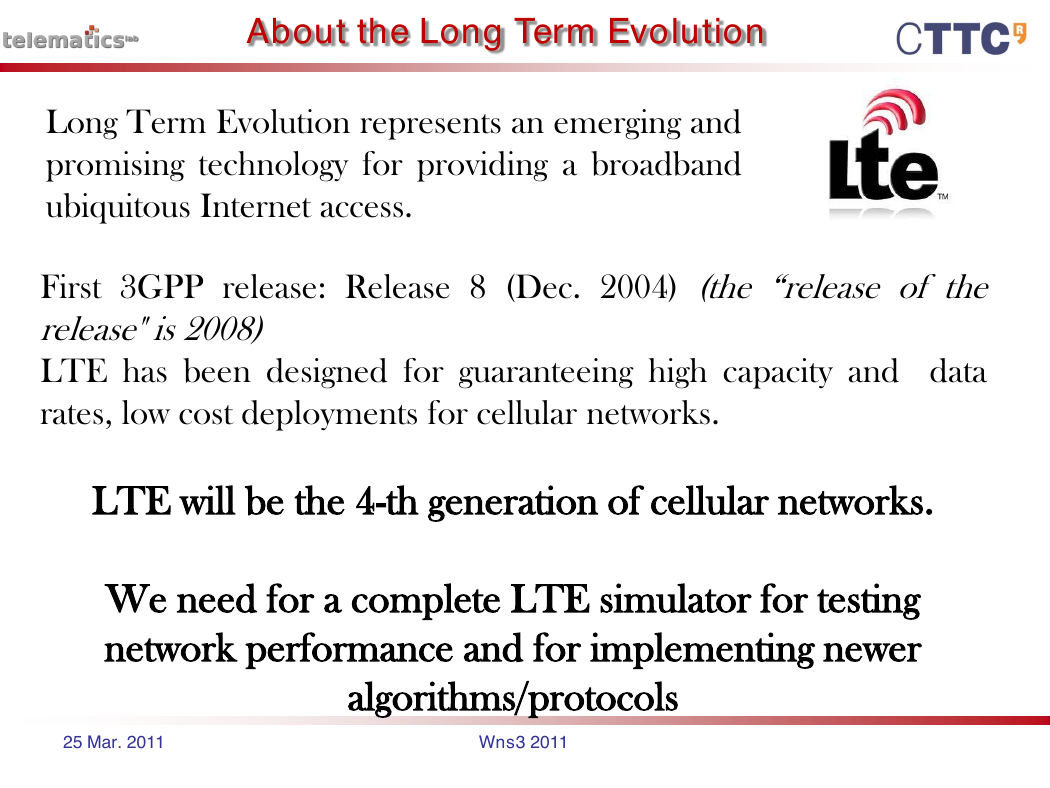
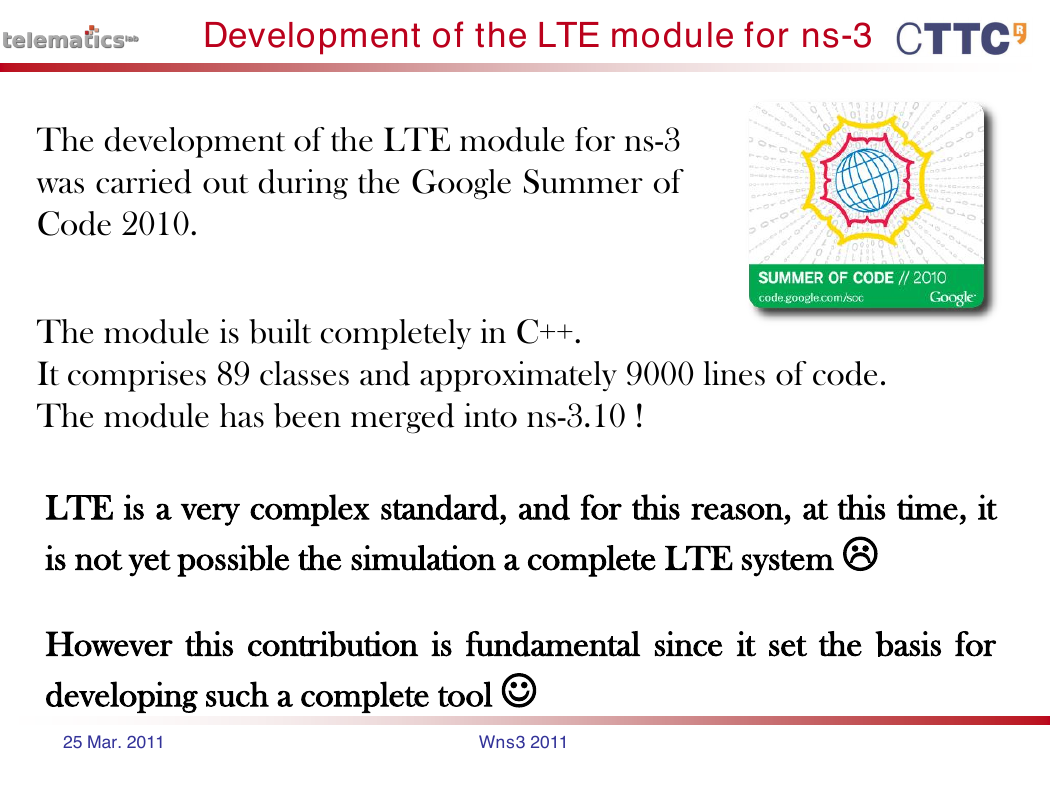
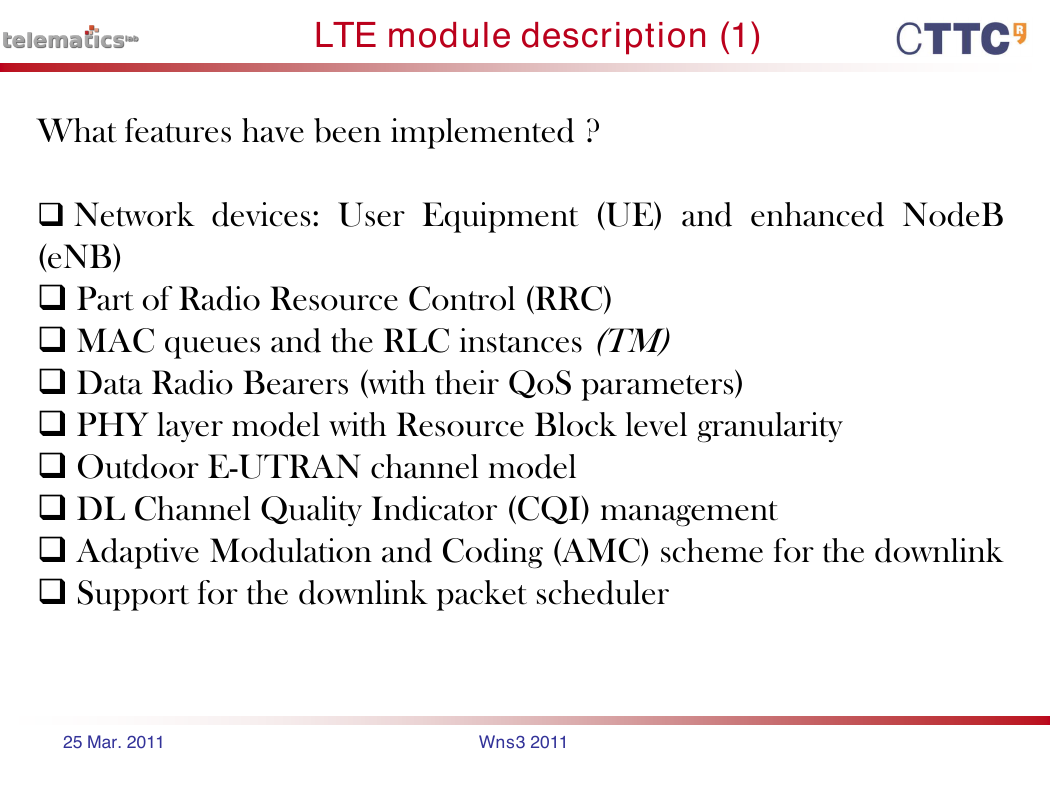
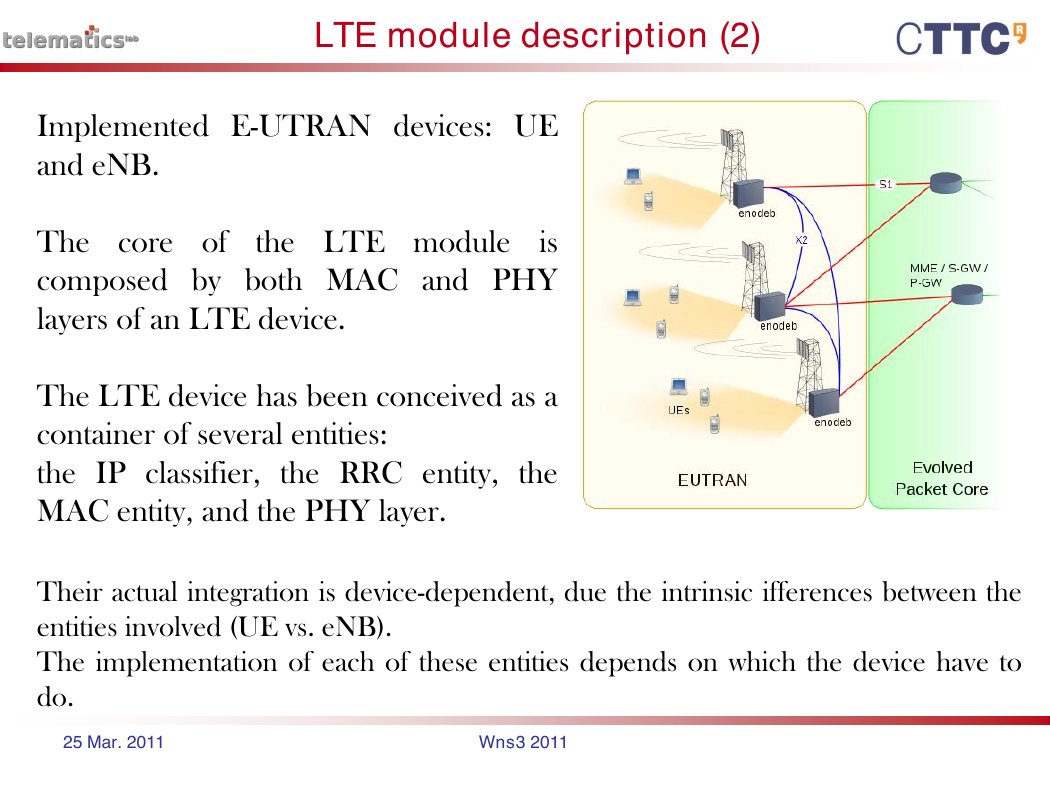
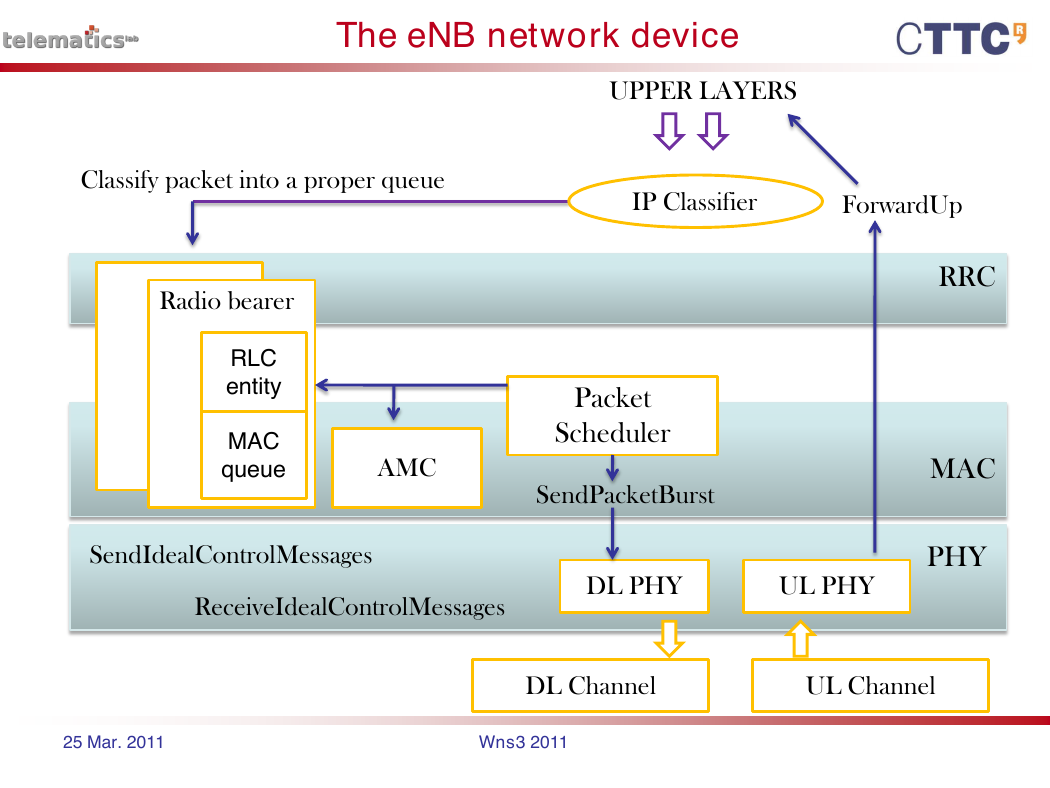
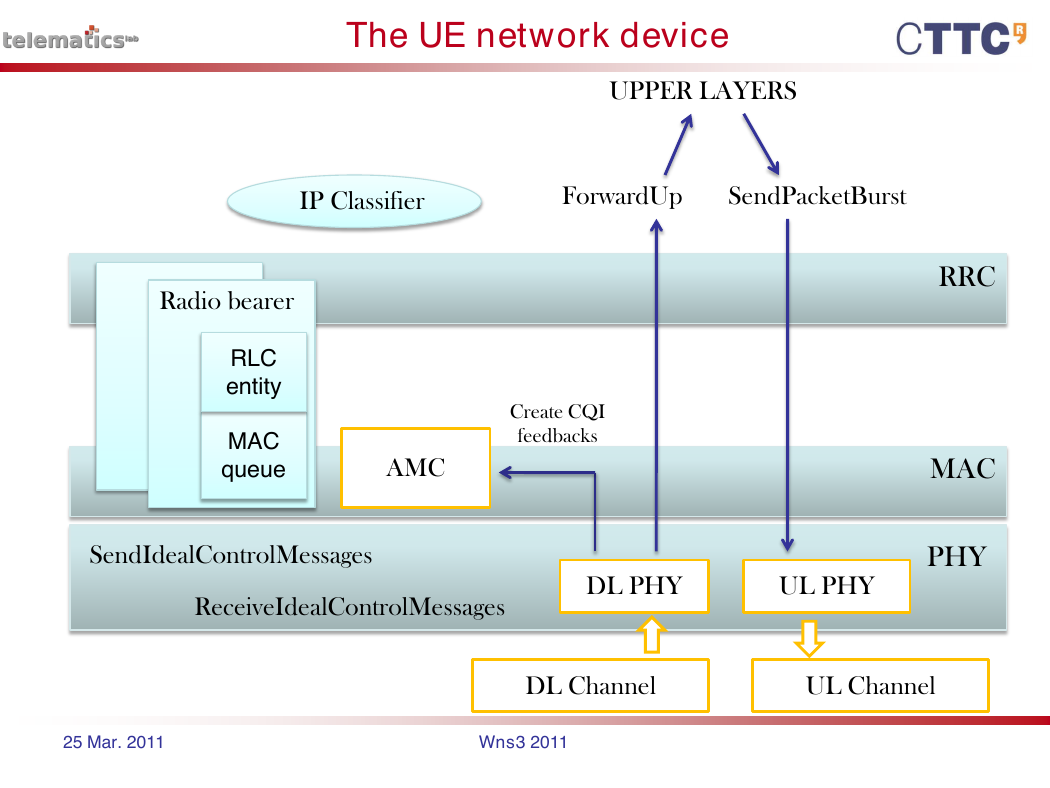








 2023年江西萍乡中考道德与法治真题及答案.doc
2023年江西萍乡中考道德与法治真题及答案.doc 2012年重庆南川中考生物真题及答案.doc
2012年重庆南川中考生物真题及答案.doc 2013年江西师范大学地理学综合及文艺理论基础考研真题.doc
2013年江西师范大学地理学综合及文艺理论基础考研真题.doc 2020年四川甘孜小升初语文真题及答案I卷.doc
2020年四川甘孜小升初语文真题及答案I卷.doc 2020年注册岩土工程师专业基础考试真题及答案.doc
2020年注册岩土工程师专业基础考试真题及答案.doc 2023-2024学年福建省厦门市九年级上学期数学月考试题及答案.doc
2023-2024学年福建省厦门市九年级上学期数学月考试题及答案.doc 2021-2022学年辽宁省沈阳市大东区九年级上学期语文期末试题及答案.doc
2021-2022学年辽宁省沈阳市大东区九年级上学期语文期末试题及答案.doc 2022-2023学年北京东城区初三第一学期物理期末试卷及答案.doc
2022-2023学年北京东城区初三第一学期物理期末试卷及答案.doc 2018上半年江西教师资格初中地理学科知识与教学能力真题及答案.doc
2018上半年江西教师资格初中地理学科知识与教学能力真题及答案.doc 2012年河北国家公务员申论考试真题及答案-省级.doc
2012年河北国家公务员申论考试真题及答案-省级.doc 2020-2021学年江苏省扬州市江都区邵樊片九年级上学期数学第一次质量检测试题及答案.doc
2020-2021学年江苏省扬州市江都区邵樊片九年级上学期数学第一次质量检测试题及答案.doc 2022下半年黑龙江教师资格证中学综合素质真题及答案.doc
2022下半年黑龙江教师资格证中学综合素质真题及答案.doc